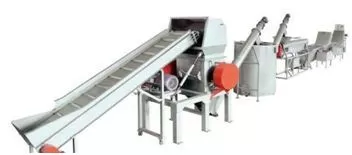Plastic pollution is a global crisis. Oceans are filling up with plastic waste. Beaches are littered with debris. Wildlife is suffering. Indonesia, being one of the largest contributors to plastic waste, faces significant challenges. What actions are being taken to combat this issue?

Indonesia has launched several initiatives to address plastic pollution. These actions include government policies, community programs, and innovative technologies, all aimed at reducing plastic waste and promoting sustainability.
You might wonder, what exactly are these initiatives and how effective are they? Let’s explore Indonesia’s battle against plastic pollution.
What Government Policies Are in Place?
Indonesia’s government has implemented various policies to tackle plastic pollution. One significant step is the imposition of a plastic bag levy in major cities. This policy aims to reduce single-use plastic consumption by charging consumers for plastic bags. Additionally, the government has set ambitious targets to reduce marine plastic debris by 70% by 2025 through comprehensive waste management programs.
How Are Communities Involved?
Community involvement is crucial in the fight against plastic pollution. Numerous grassroots initiatives have sprung up across Indonesia. For example, community-based recycling programs encourage residents to segregate waste and recycle plastics. Educational campaigns in schools and neighborhoods raise awareness about the importance of reducing plastic waste. These efforts help create a culture of environmental responsibility.
What Role Does Technology Play?
Technology plays a pivotal role in combating plastic pollution. Indonesian startups are developing innovative solutions to tackle plastic waste. For instance, some companies are using advanced recycling techniques to convert plastic waste into useful products like fuel and construction materials. Additionally, digital platforms are being used to connect waste collectors with recycling facilities, streamlining the recycling process.
How Is the Private Sector Contributing?
The private sector in Indonesia is also stepping up its efforts. Many companies are adopting sustainable practices and reducing their plastic footprint. Retailers are offering alternatives to single-use plastics, such as reusable bags and biodegradable packaging. Corporations are also investing in recycling infrastructure and supporting environmental initiatives as part of their corporate social responsibility programs.
What About International Cooperation?
International cooperation is essential for addressing plastic pollution. Indonesia collaborates with various countries and organizations to tackle this issue. For example, partnerships with international environmental groups help implement large-scale cleanup projects and develop sustainable waste management strategies. These collaborations bring in expertise, funding, and resources to bolster Indonesia’s efforts against plastic pollution.
How Effective Are Cleanup Campaigns?
Cleanup campaigns are a visible and immediate response to plastic pollution. Indonesia organizes regular beach cleanups involving volunteers from all walks of life. These campaigns not only remove plastic waste from the environment but also raise awareness about the issue. Additionally, river cleanup projects are being conducted to prevent plastic waste from reaching the ocean.
What Are the Challenges?
Despite significant efforts, Indonesia faces several challenges in combating plastic pollution. One major hurdle is the lack of adequate waste management infrastructure, especially in rural areas. Additionally, changing consumer behavior towards sustainable practices takes time and continuous effort. However, with persistent action and commitment, these challenges can be overcome.
What Is the Future Outlook?
The future of plastic pollution control in Indonesia looks promising. With ongoing government initiatives, increasing community participation, and advancements in technology, Indonesia is making steady progress. The goal is to achieve a significant reduction in plastic waste and establish a sustainable waste management system. Continued efforts and innovation will be key to realizing this vision.
Conclusion
Indonesia’s fight against plastic pollution is a multi-faceted approach involving government policies, community involvement, technological innovation, private sector contributions, and international cooperation. While challenges remain, the progress made so far is encouraging. By continuing these efforts, Indonesia can make a substantial impact in reducing plastic pollution and promoting a sustainable future.
That’s the blueprint. Together, we can create a cleaner and greener Indonesia.
